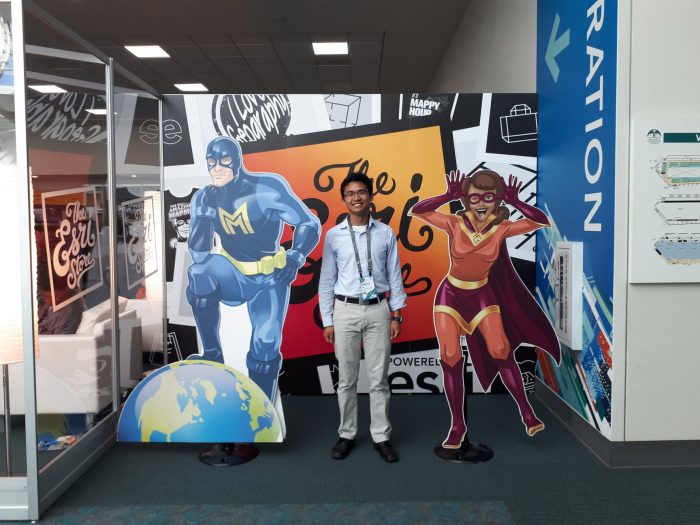My Experience as a Student Associate with the SFU ECCE
In addition to writing about his experiences as an ECCE student associate below, Anthony Lee was also a member of the winning App Challenge team last year, and joined us along with his teammates at the Esri International User Conference in 2018. You can view their team profile and live app demo hosted from the ECCE GitHub repository: https://esricanada-ce.github.io/appchallenge/2018/teams/sfu/mapit.space/
Hi Everyone,
This will be my final blog post (just about to graduate, yay!). I just wanted to briefly write about my experiences with the SFU ECCE since I joined in 2016 and how it has impacted my GIS career (hopefully it will give some insights into how it benefited me and provide some ideas on how you can maximize your ECCE experiences).
First, let’s start off with an imaginative visual. Let’s picture a simple browser like Google Chrome or Mozilla Firefox. The browser does everything normally, you can use it to browse the web and do whatever your need it to do. However, if you install some extensions or add-ons like an ad-blocker or Grammarly, your browser experience can become way better. Now if we apply this to the real world, we can pretend that students like you and me are like a browser. SFU provided me with my foundation in the field of geography and GIS. Being an ECCE Student Associate can be seen as something similar to an add-on. It enhanced my educational experience at SFU.
The benefits of being a Student Associate can be found here. Being a Student Associate will do three things for you:
- Give you free access to an ArcGIS Developer Subscription
- Give you free access to instructor-led GIS Training from Esri Canada
- Give you free access to Esri-led conferences (Local User Conference & Developer Summit)
During my three years as a Student Associate, I used my Developer Subscription to explore other GIS software (mainly within ArcGIS Online) and how to perform tasks not taught in class. I took 3 instructor-led courses from Esri Canada (one on CAD, one on Python scripting, and one on map design) which furthered the skills learned in class. Lastly, I attended conferences which kept me up-to-date on industry & GIS trends. The conferences were also a great networking opportunity as it’s basically a time where GIS professionals across the Lower Mainland unite.
Being a Student Associate gives you the opportunity to extend the principles, concepts, and skills you learn in classes. It also lets you explore new tools and learn more about things you may not learn in class. I feel that the program complemented my undergraduate education very well and I was fortunate enough to have the support from the SFU ECCE throughout these last 3 years. I want to give a final thank you to Dr. Shivanand Balram, Dr. Suzana Dragićević, and Esri Canada for giving me the opportunity to be a part of such an incredible program. For those of you that are still in school or that are just starting out, I highly suggest you try to get involved in this program if it is available at your institution or any other program that will force you to expand and practice what you learn in class (as there is only so much you can learn in the classroom). It’ll help you a lot with career preparation (it definitely did for me)!

